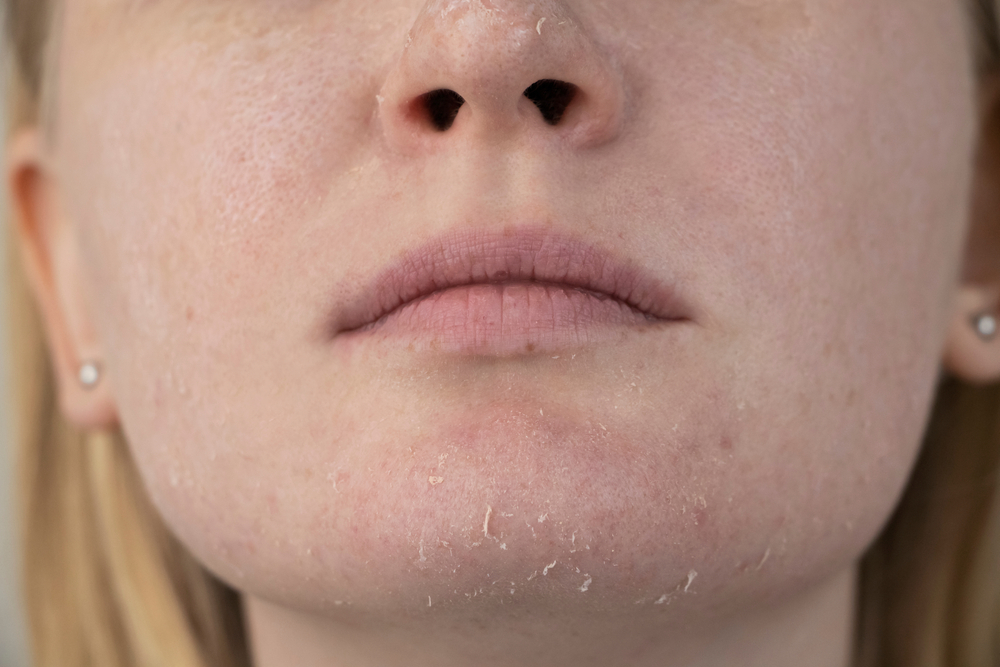There isn't a one-size-fits-all approach to maintaining healthy skin. Factors like skin type, skin conditions, and skin care goals all go into building the best skin care routine for you. But everyone needs a step in their regimen that protects against the sun's ultraviolet (UV) rays. Typically, that means sunscreen, but innovations in cosmetics have introduced categories like makeup and moisturizers with SPF. Likewise, many modern sunscreen formulas boast added skin care benefits, including hydration.
Given the overlap between skin care and sun care, can sunscreen be used as moisturizer?
Moisturizer vs. Sunscreen
Your morning skin care regimen likely includes a facial cleanser, moisturizer, and sunscreen—in that order. Moisturizer and sunscreen are traditionally viewed as two separate steps in a skin care routine because they serve different purposes.
Moisturizer
Moisturizers can have multiple functions, but the primary purpose of a moisturizer is to increase skin hydration. These formulas work by drawing moisture into the skin with the help of humectants like Glycerin and Hyaluronic Acid. They may also contain occlusives, such as Squalane, to prevent water from escaping through evaporation. For example, EltaMD Skin Recovery Light Moisturizer contains both humectants and occlusives to flood skin with hydration and lock it in—an effective combo for alleviating dryness.
Sunscreen
The last step in your morning skin care routine should always be sunscreen (not including makeup, which goes on after). The main function of sunscreen is to shield your skin from damaging UV light. Sunscreen reduces the risk of sun-related skin diseases, like skin cancer, and prevents visible signs of premature aging, such as dark spots and fine lines. There are two main types of sunscreen: mineral and chemical. They work in different ways, but they share the same goal of protecting the skin from the harmful effects of prolonged sun exposure. Hybrid formulas like EltaMD UV Clear Broad-Spectrum SPF 46 contain the best of both types.
Moisturizing Elements of Sunscreen
Moisturizers and sunscreens are fundamentally different, but there is some overlap between the two. In the past, sunscreen was just a vessel for photoprotective active ingredients, and moisturizers were simply vehicles for hydrating ingredients. Now, sunscreen can contain moisturizing agents and moisturizers can contain SPF.
Some of the most common moisturizing ingredients added to modern sunscreens include Hyaluronic Acid, ceramides, and Squalane. These ingredients increase water content in the skin, support skin barrier function, and seal in moisture, respectively. Today's sunscreens may also contain other beneficial active ingredients, such as antioxidants Niacinamide, Vitamin C, and Vitamin E. These antioxidants help prevent skin damage, and Vitamin E has added moisturizing benefits.
So, sunscreen isn't always just sunscreen. Some formulas can offer similar benefits to a moisturizer, and both products seek to support your overall skin health. But, despite some crossover, they don't negate each other.
So, Can Sunscreen Be Used as Moisturizer?
Is sunscreen moisturizing enough to kick your daily lotion to the curb? Usually, no, but sometimes. A moisturizer's primary focus is to increase skin hydration, and a sunscreen's primary focus is to minimize sun damage. Anything else is a bonus. In most cases, it's still best practice to use both a moisturizer and sunscreen as two separate steps in your skin care routine. If you have dry skin, using both doubles your skin's opportunities to drink up moisturizing ingredients. The same goes for if you're prone to dryness during the colder months.
If your skin is oily or more balanced—or during the warmer months—you may be able to get away with skipping your moisturizer and going straight to a hydrating sunscreen in the morning. Just make sure it contains ingredients you'd see in a moisturizer, such as EltaMD UV Sheer Broad-Spectrum SPF 50+, which contains Hyaluronic Acid, Squalane, and Vitamin C.
Remember: While sunscreen may be used in place of moisturizer for some people in some cases, it doesn't work the other way around. Moisturizers with SPF don't offer the same degree of protection as a full-fledged, broad-spectrum sunscreen. So, no matter what, sunscreen is a pillar of skin health.
